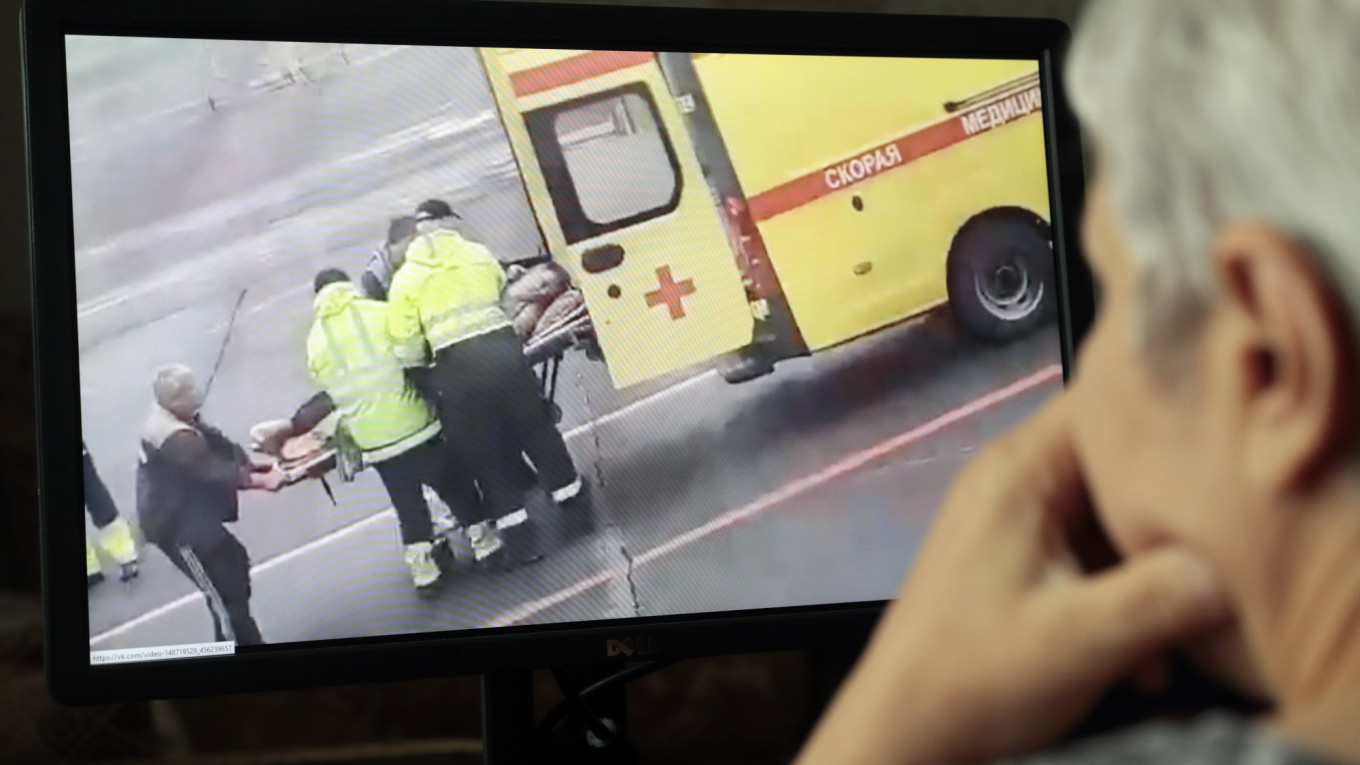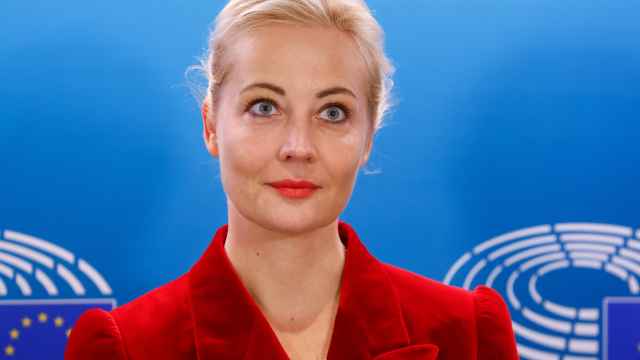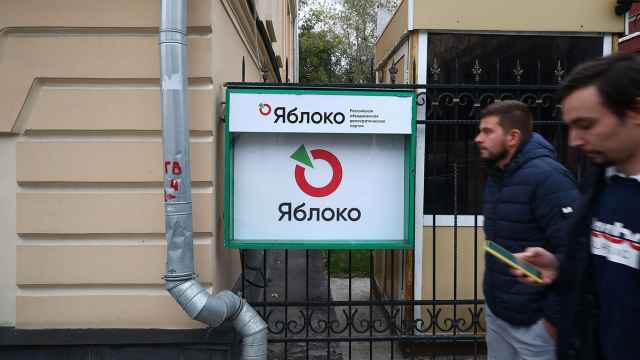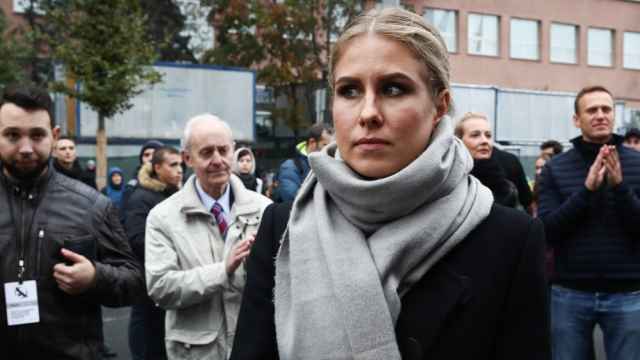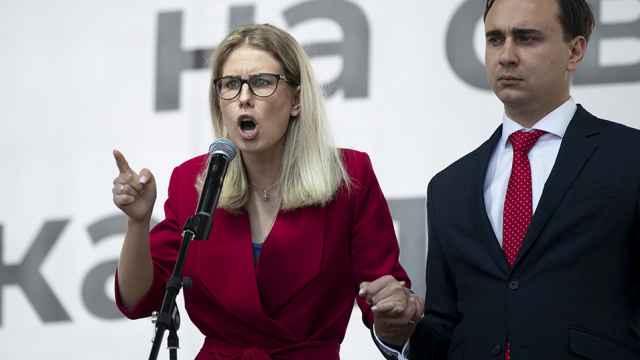Russian opposition leader Alexei Navalny, who has been a thorn in the Kremlin’s side for years, is in a coma in a Siberian hospital after suffering an apparent poisoning.
A hospital representative in the Siberian city of Omsk told journalists on Thursday that the Kremlin critic is connected to a ventilator and in critical condition. The representative said that all necessary tests were being taken.
“We suspect Alexei was poisoned with something mixed into his tea. It was the only thing he drank all morning,” Navalny’s spokeswoman Kira Yarmysh wrote on Twitter Thursday morning. “Doctors said that the toxin was absorbed more quickly through hot liquid.”
Navalny fell ill during a flight from the Siberian city of Tomsk to Moscow. A photo surfaced Thursday morning of the opposition leader drinking a cup of tea in an airport cafe, before another video circling on social media showed him being stretchered off the plane in obvious pain when it made an emergency landing in Omsk.
The state-run Tass news agency cited a law enforcement official as saying that so far investigators are not considering that Navalny was poisoned intentionally.
On Thursday afternoon, the Interfax news agency cited Vladimir Putin's spokesman Dmitry Peskov as saying that the Kremlin wishes Navalny a speedy recovery and that if he needs to leave the country for treatment, the necessary travel requests will be considered. Peskov also urged people not to speculate about the causes of Navalny’s illness and to wait for test results.
“Of course this was an intentional poisoning,” Yarmysh said later on a special broadcast of Navalny’s live YouTube talk show, hosted by ally Vladimir Milov in the opposition leader’s stead. “When we were in the ambulance, the doctors said that it was toxins and he was poisoned.”
The Meduza news website cited Navalny’s personal doctor Anastasiya Vasiliyeva, who traveled to Omsk on Thursday, as saying that his blood tests showed good signs but that he was not receiving “detoxification treatment.”
In a post on Twitter, Vasiliyeva wrote that Navalny’s team would seek to obtain permission to be flown abroad. She also said that his aides have so far been unable to obtain vital medical documents about Navalny’s condition.
The opposition leader’s aides are hoping he сan be moved to a clinic in Europe as they believe Russian doctors will be intimidated into not disclosing the true cause of his illness if it is indeed poisoning.
Navalny’s team in Omsk posted on Twitter that Vasiliyeva had already agreed with one clinic to take in the Kremlin critic and that transport had been readied, but that the Omsk hospital had refused to let him go on account of his condition.
Navalny was returning to the Russian capital on Thursday after touring Siberia in support of independent candidates running in local elections next month. On Wednesday, he posted a photo on Instagram from the city of Tomsk with the caption: “Crooks wont kick themselves out of the city parliament!”
A longtime critic of the Kremlin and Russia’s de facto opposition leader, Navalny has faced pressure for his activism before.
While serving a 30-day prison sentence last summer for calling on people to attend an anti-government protest, Navalny suffered an acute allergic reaction. At least one doctor said he may have been poisoned.
In 2017, a pro-Kremlin activist threw a chemical dye at him that left him partially blind in one eye.
That year Navalny had triggered some of the largest anti-government protests in years after his Anti-Corruption Foundation published an investigation into corruption by then Prime Minister Dmitry Medvedev. On Thursday, the local Taiga.info news website reported that Navalny may have been in Tomsk to work on an investigation into local deputies representing the ruling United Russia party.
There is a history of Kremlin critics having been poisoned.
In 2006, former Russian spy turned critic of President Vladimir Putin Alexander Litvinenko was poisoned by tea laced with a radioactive isotope while in exile in the U.K.
In 2018, the U.K. accused Russian military intelligence of poisoning former Russian spy Sergei Skripal with Novichok, a military grade nerve agent.
That same year, Pussy Riot activist and publisher of the online investigative news site Mediazona Pyotr Verzilov was rushed to a Moscow hospital after suddenly losing his sight, hearing and mobility. After three days he was airlifted to Germany, where doctors at a hospital in Berlin said his symptoms were strongly indicative of poisoning.
A Message from The Moscow Times:
Dear readers,
We are facing unprecedented challenges. Russia's Prosecutor General's Office has designated The Moscow Times as an "undesirable" organization, criminalizing our work and putting our staff at risk of prosecution. This follows our earlier unjust labeling as a "foreign agent."
These actions are direct attempts to silence independent journalism in Russia. The authorities claim our work "discredits the decisions of the Russian leadership." We see things differently: we strive to provide accurate, unbiased reporting on Russia.
We, the journalists of The Moscow Times, refuse to be silenced. But to continue our work, we need your help.
Your support, no matter how small, makes a world of difference. If you can, please support us monthly starting from just $2. It's quick to set up, and every contribution makes a significant impact.
By supporting The Moscow Times, you're defending open, independent journalism in the face of repression. Thank you for standing with us.
Remind me later.



